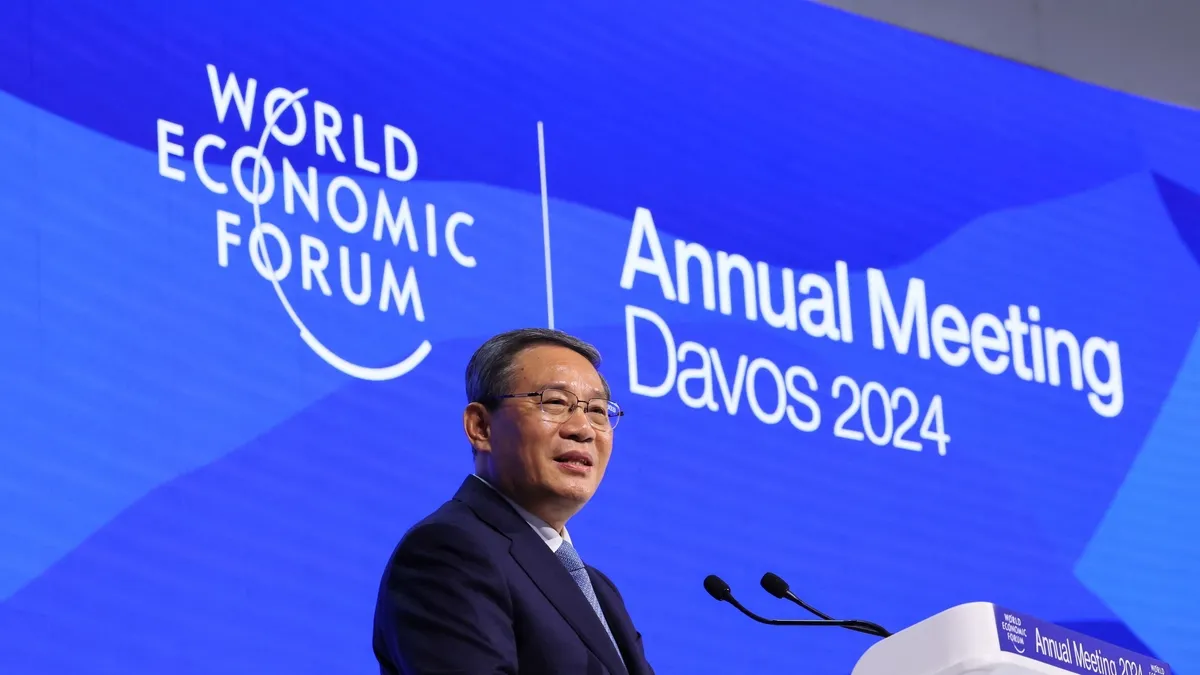DAVOS, Switzerland, Jan. 18 (Xinhua) — Trade and investment remain essential for the continued recovery of the global economy, participants said at the 54th World Economic Forum (WEF) Annual Meeting here this week.
“Without a free flow of trade, I don’t think we can recover,” Ngozi Okonjo-Iweala, director-general of the World Trade Organization (WTO), said in a session exploring the role of trade and investment as a driver of economic growth.
Stressing a two-way relationship between growth and trade, she said the WTO is negotiating an investment facilitation agreement with 110 countries, in an effort to help developing countries “sweep away barriers” for investment to flow in and revitalize trade and growth.
According to Okonjo-Iweala, the WTO was “slightly less optimistic” about its projected 3.3 percent growth in commodity trade this year due to the tensions in the Red Sea and the downgrade of global growth.
“We are revising it, but I do not have the new numbers,” she said.
In October, the WTO more than halved last year’s global commodity trade forecast to 0.8 percent, compared to 1.7 percent estimated in April, but maintained its 3.3 percent growth forecast for 2024.
Global trade leaders at the WEF see significant opportunities for investment in growth across global supply chains, such as digital trade, services and green trade.
A mindset shift is needed, where trade and globalization are “embraced politically,” said Khaldoon Khalifa Al Mubarak, chief executive officer and managing director at Mubadala Investment Company of the United Arab Emirates. “With economic development comes prosperity, with prosperity comes stability, with stability, ultimately, you have peace.”
Greek Prime Minister Kyriakos Mitsotakis said that geopolitical instability also poses risks to supply chains and international trade.
Talking about the European Union’s (EU) role in securing trade that would recover global growth, EU Commissioner for Trade Valdis Dombrovskis said the 27-member bloc is committed to preserving a rules-based multilateral trading system.
He said the geopolitical context is changing and becoming much more conflictual, posing the risk of economic fragmentation.
As the largest trading block in the world with the most comprehensive network of free trade agreements, the EU has a lot at stake when discussing the global trading system, he added.
“We really need to revive growth and investment, to see an inclusive job creating, and sustainable recovery,” WEF President Borge Brende said.
Under the theme “Rebuilding Trust,” the WEF annual meeting, scheduled for Jan. 15-19, focuses on four priorities: achieving security and cooperation in a fractured world; creating growth and jobs for a new era; harnessing artificial intelligence as a driving force for the economy and society, and formulating a long-term strategy for climate, nature, and energy.
Source(s): Xinhua

 News6 days ago
News6 days ago
 News7 days ago
News7 days ago
 News2 days ago
News2 days ago
 World3 days ago
World3 days ago
 Business6 days ago
Business6 days ago
 World3 days ago
World3 days ago
 News6 days ago
News6 days ago
 News3 days ago
News3 days ago

















